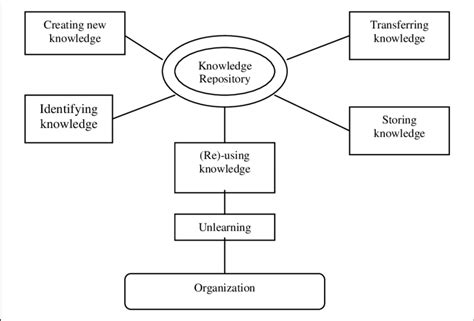
Knowledge Management in HR and Organizations
In an earlier blog, we talked about HR, the management of work, culture, and people towards a desired end as a fundamental activity, as an inevitable consequence of starting, growing and developing an organization. We looked at its historical role and development. In this blog, we will go a little bit deeper and look at the role of knowledge management in the modern organization.
A Brief History of Knowledge Management
Knowledge management came about in the 1970s because of papers published by management theorists and practitioners like Peter Drucker and Paul Strassman. In the 1990s it grew to become a major focus in many local and global companies. Initially, there was not a great deal of interest in knowledge management amongst business executives, however after the publishing of the book by Nonaka and Hirotaka Takeuchi: The Knowledge Creating Company: How Japanese Companies Create the Dynamics of Innovation, knowledge management was given more attention. In fact, by the mid-1990s, many companies began to realize a competitive edge due to increased company knowledge assets. The end of the 1990s saw the phasing out of the total quality management (TQM) and business process re-engineering initiatives and the implementation of knowledge management solutions.
The modern organization
To sustain their position in the competitive world outside, the organizations must keep a constant watch on the market, reduce cycle times, operate with minimum fixed assets, reduce product development time, improve customer service, empower employees, innovate and deliver high quality goods or services, capture & analyze data, create and share knowledge. Managers are responsible for all the issues in the company. They need to make the right decisions at the right time. This asks for effective knowledge management (KM).
The Practice of Knowledge Management
Knowledge management is the practice of centralizing all documents, policies, information, and other business-specific know-how. The goal is to make vital information easy for anyone in the company to access and update from anywhere. A good knowledge management system makes it easy to summarize, store, review and retrieve knowledge, as well as to encourage innovation, transformation, learning and development within any organization. Centralized HR knowledge management feeds into the way people are used to accessing information.
Knowledge as an Asset
Knowledge is the theoretical or practical understanding of a subject. Knowledge is a core asset of any organization, helping the organization in paving a successful path for reaching its goals and objectives. Managing the knowledge assets available in an organization is the major challenge a business will face today. Effective knowledge management can change the face of HRM in organizational growth and competitiveness by:
Summarizing, storing, reviewing and retrieving
Knowledge management is the process of capturing, organizing, sharing, and using an organization’s knowledge assets to improve efficiency, productivity, and decision-making. HR departments can benefit from knowledge management in several ways:
Talent acquisition and retention
By managing knowledge related to job descriptions, candidate evaluation criteria, and onboarding procedures, HR departments can attract and retain the best talent for the organization.
Training and development
Knowledge management can be used to develop training and development programs that are tailored to the needs of employees, leading to increased productivity and job satisfaction.
Succession planning
Knowledge management can help HR departments identify key roles and the knowledge required to perform those roles, which can facilitate succession planning and reduce the risk of losing valuable institutional knowledge when employees retire or leave the organization.
Compliance and legal requirements
By managing knowledge related to compliance and legal requirements, HR departments can ensure that the organization is meeting all relevant standards and regulations.
Performance management
Knowledge management can support performance management by providing insights into employee performance, feedback, and training needs.
Overall, knowledge management can help HR departments work more efficiently, make more informed decisions, and support the ongoing development of employees and the organization as a whole.
Knowledge Management as part of the HR Strategy
The HRM strategy and the general strategy of a firm make up the general knowledge management strategies. Two approaches to this are the exploitative strategy and explorative strategy. Both strategies have behavior effects, which have some impact on the knowledge management process.
- The exploitative strategy will put greater emphasis on knowledge storage, technical skills, as well as distributing explicit knowledge via IT solutions. This increases the risk that firms adopting such a strategy will be locked into past design and to be unable to reach for future applications.
- Explorative strategy places greater weight on knowledge creation, as well as on human interaction to transfer tacit knowledge and use knowledge to increase innovation, transformation, DEI and new learning & development. Firms adopting such a strategy tend to lack structure and processes to utilize the innovations & transformations into competitive advantages.
Knowledge Management lifecycle

Adapted from Rosemann and Chan (2000).
Knowledge Management meets HR
We live in an on-demand, instant gratification world. The remark: “there’s an app for that” has become a panacea, people expect to get any information they want at any time without delay. In the HR context for employees that means answers relating to work, particularly about aspects like benefits, insurance, DEI, training, career, vacation time, company holidays, 401ks, etc. Enabling employees to quickly and easily get answers without waiting for an emailed reply creates a better overall experience. This not only increases employee morale, but can also improve productivity as employees are able to quickly find an answer and move on instead of dwelling on their question.
How is knowledge management embedded in Human Resources? Basically through any form of communication that conveys important HR information about the organization. Allowing employees—regardless of department, location, or tenure—to quickly access the information they need can help reduce frustration for employees, improve processes, minimize the chance of getting outdated or incorrect information, and a lower workload for staff, by no longer having to answer the same question over and over again.
HR knowledge management platform
To achieve a constant flow of information, continuous transfer of knowledge, and effective sharing of experience, an organization has to focus on four pillars: people, platforms, processes, and culture. Although these pillars seem like a cliché, there exist certain actions which lead to a learning organization.
A well organized HR knowledge management platform makes it easy for teams (even dispersed ones) to know exactly what exists and what really needs to be created. Even if a new document or policy does need to be created, teams may be able to minimize effort and time by working off an existing document rather than creating something entirely from scratch. In many cases, the knowledge and framework is already there, certain aspects may simply need to be tweaked or updated. With good platform organization and proper role-based access controls in place, all employees can get the information they’re seeking faster and easier without having to wait on HR. For human resource employees, this means a lot less time answering questions and seeking out the right documents. Part of the platform may even be open to non employees for hiring purposes.
Keepers of vital and strategic information
From learning and development , digital security, onboarding, Identity Access Management (IAM), DEI, insurance and benefits information to company policies, and beyond, HR organizations are the keepers of some of a company’s most vital and strategic information—and the information employees most often need access to. Without the right solution in place, dispersing information and answering questions can take up an inordinate amount of an HR team’s time, pushing more critical tasks down the to-do list.
The core business of the HR function is to develop the employees in accordance with the business strategy, select and hire people, train and develop the staff, evaluate their performance, reward them and create a culture of learning (Evans, 2003). An HR knowledge management solution is a solution for HR teams and managers to make information and answers simple and easy for employees to find themselves. When the right HR knowledge management solution is fully implemented and used wisely, HR teams will wonder how they ever operated without one.
Employee onboarding
Employee onboarding can make or break a new employee’s experience. Onboarding packets are helpful, but they’re easily misplaced and cumbersome for HR to update. In the end, onboarding inefficiencies can be costly, and as organizations grow, so does that cost.
Moving employee onboarding to the HR knowledge management platform makes it easy for HR to add new information and update existing information as needed. It also gives the employee a simple way to access the information they need at any time—even months after their start date when a traditional onboarding packet may have been lost. Having new employees access onboarding information in the same place they’ll go to later for overall organizational and HR knowledge serves the dual purpose of getting them familiar with this vital business tool facilitating habit formation.
Employee onboarding can make or break a new employee’s experience. Onboarding packets are helpful, but they’re easily misplaced and cumbersome for HR to update. Moving employee onboarding to the HR knowledge management platform makes it easy for HR to add new information and update existing information as needed. It also gives the employee a simple way to access the information they need at any time—even months after their start date when a traditional onboarding packet may have been lost.
Valuable insights into organizational health,
HR knowledge management platforms aren’t just libraries. When used to the fullest potential, it can offer valuable insights into organizational health, potential risks & biases. Having access to “Last Updated” dates will help HR teams track which documents or policies may have to be reviewed for updating. Looking at metrics such as which department accessed the knowledge management system most (or least) and which files are most viewed can tell HR teams where additional training, learning and development, where interventions may be necessary or clarification may be needed. Having a knowledge management system that allows employees to ask questions or seek clarification within the same platform further streamlines the HR information process and can give teams or managers insight into missing or confusing information.
Having easy access to data-based information allows HR teams to more accurately plan future documentation and updates in a way that will truly benefit the organization. It can also help teams proactively address potential trouble areas rather than dealing with an issue that has already occurred.
Hopefully you found this article on the role of knowledge management for HR insightful. If you enjoyed reading it, please consider sharing it with a colleague or friend. Read more articles on our blog or watch 100+ videos on our Youtube channel!
About Neurofied
Neurofied is a behavioral science company specialized in training, consulting, and change management. We help organizations drive evidence-based and human-centric change with insights and interventions from behavioral psychology and neuroscience. Consider us your behavioral business partner who helps you build behavioral change capabilities internally.
Since 2018, we have trained thousands of professionals and worked with over 100 management, HR, growth, and innovation teams of organizations such as Johnson & Johnson, KPMG, Deloitte, Novo Nordisk, ABN AMRO, and the Dutch government. We are also frequent speakers at universities and conferences.
Our mission is to democratize the value of behavioral science for teams and organizations. If you see any opportunities to collaborate, please contact us here.